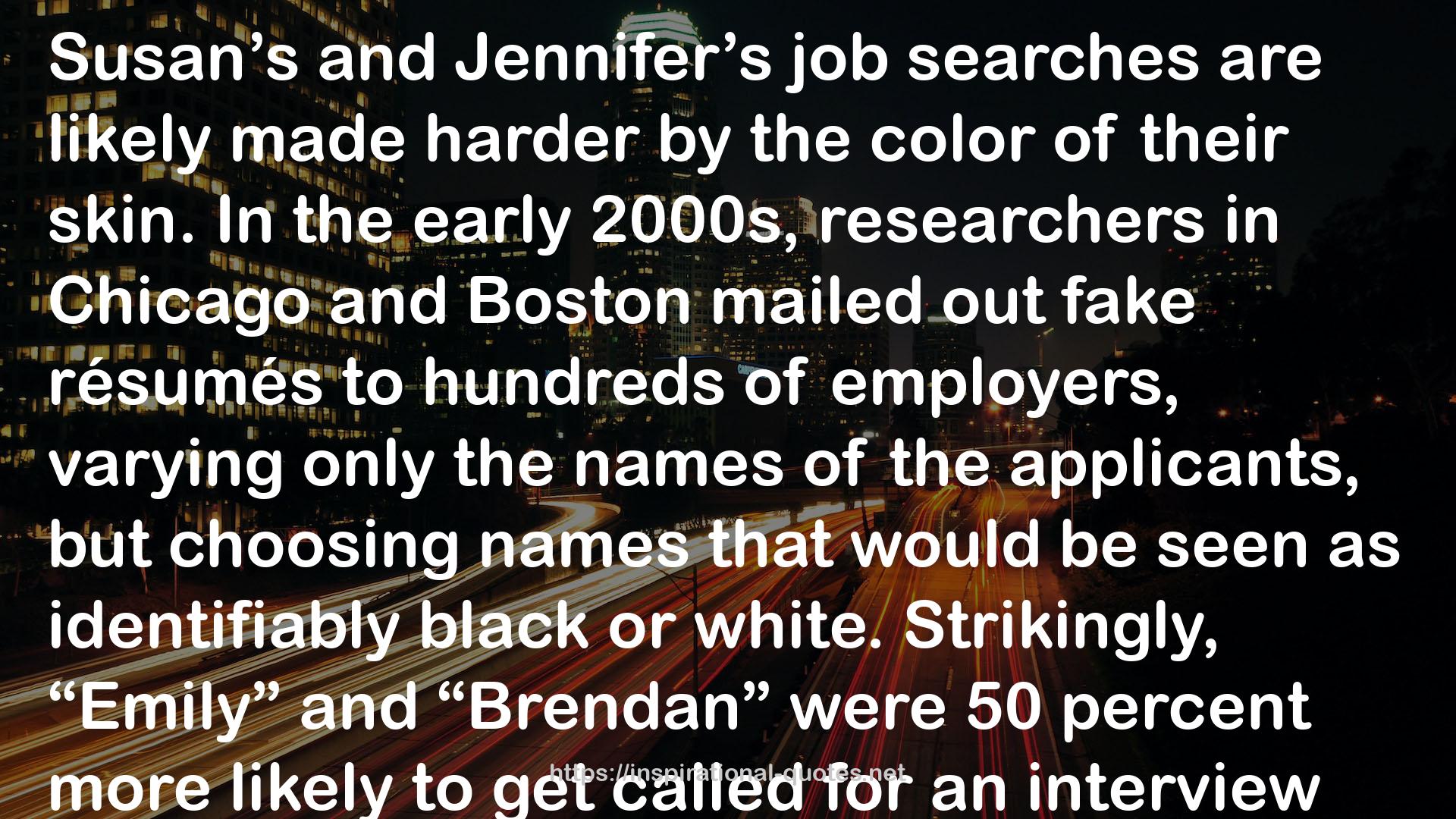" Susan’s and Jennifer’s job searches are likely made harder by the color of their skin. In the early 2000s, researchers in Chicago and Boston mailed out fake résumés to hundreds of employers, varying only the names of the applicants, but choosing names that would be seen as identifiably black or white. Strikingly, “Emily” and “Brendan” were 50 percent more likely to get called for an interview than “Lakisha” and “Jamal.” A few years later, a researcher at the University of Wisconsin conducted a similar study in Milwaukee, but with a unique twist. She recruited two black and two white actors (college students, posing as high school graduates) who were as similar as possible in every way. She sent these “job applicants” out in pairs, with virtually identical fake résumés, to apply for entry-level jobs. Her twist was to instruct one of the white and one of the black applicants to tell employers that they had a felony conviction and had just been released from prison the month before. Even the researcher was surprised by what she found: the white applicant with a felony conviction was more likely to get a positive response from a prospective employer than the black applicant with no criminal record. When the study was replicated in New York City a few years later, she and her colleagues saw similar results for Latino applicants relative to whites. "
― Kathryn J. Edin , $2.00 a Day: Living on Almost Nothing in America
